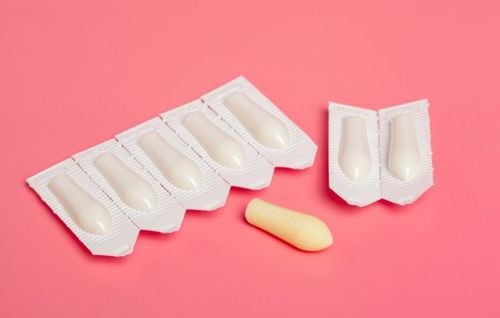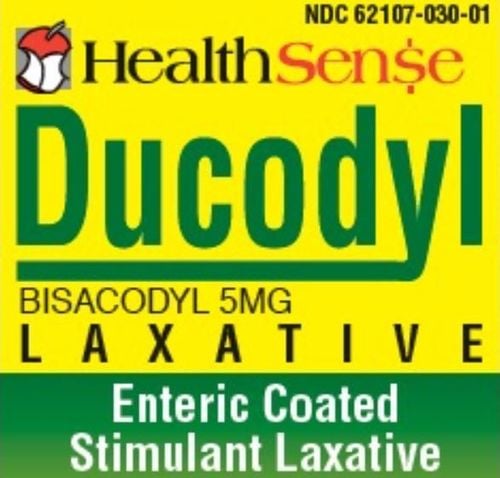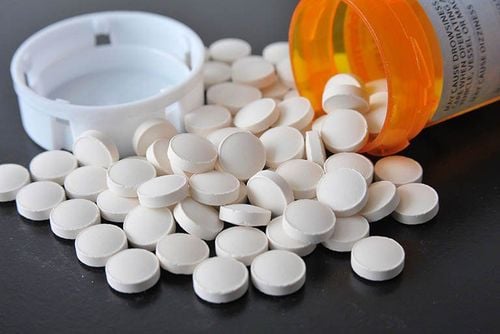This is an automatically translated article.
Laxatives or medicines for constipation both contain active ingredients that increase the movement, volume and frequency of stools, thereby providing temporary relief from constipation. However, when overused, they can cause many problems, including chronic constipation. So, how to use laxatives correctly?1. Types of laxatives
There are different types of laxatives in the form of tablets, capsules and liquids; suppositories or enemas. Each type of laxative has specific benefits and possible side effects. Although using a rectal suppository or enema isn't as convenient as swallowing a pill, laxatives that are inserted rectally by hand often work much faster to relieve symptoms.
1.1. Laxatives that increase stool volume (fiber) Fiber is the laxative that most doctors recommend for normal constipation. Pain and bloating or gas can occur with sudden increases or changes in the amount of fiber in your diet. Fiber is found naturally in fruits, vegetables, and whole grains. Fiber is also available over-the-counter as calcium polycarbophil (Equalactin, Fibercon), methylcellulose fiber (Citrucel), psyllium (Fiber-Lax. Konsyl, Metamucil) and wheat dextrin (Benefiber).
Fiber works by increasing the water content and bulk of the stool, helping to move quickly through the colon. When taking a fiber supplement, it's essential to drink enough water to minimize the chance of bloating and possible congestion.
People who increase fiber may suddenly experience stomach cramps or bloating. Also, fiber can decrease your body's absorption of some medications, so always take your medicine at least 1 hour before or 2 hours after consuming fiber.
1.2. Lubricating laxatives As the name implies, lubricating laxatives make stools slippery. The mineral oils in these products add an extra layer of lubrication to the intestinal wall and prevent stools from drying out. Although highly effective, lubricating laxatives are best used as a short-term cure for constipation. If taken for a longer period of time, mineral oil can absorb fat-soluble vitamins from the intestines and reduce some prescription medications that are not fully absorbed into the body. Do not use lubricating laxatives at the same time as other medications.
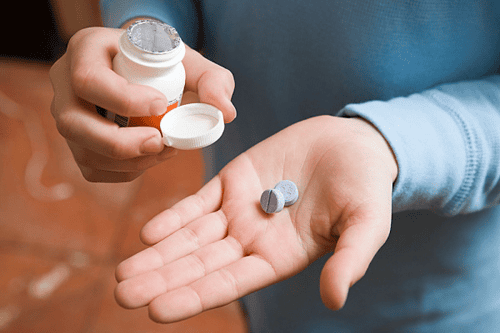
Lưu ý không dùng thuốc nhuận tràng bôi trơn đồng thời với các loại thuốc khác
1.3. Emollient laxatives (stool softeners) Although it can take a week or longer for softening laxatives to work, they are more commonly used by people recovering from surgery, women who have just babies or people with hemorrhoids.
1.4. Osmotic laxatives These osmotic laxative products include Fleet Phospho-Soda, lucatose (Kristalose), magnesium hydroxide, lactitol (Pizensy) and polyethylene glycol (Miralax) - all fluid-absorbing hydrating agents enter the intestine from surrounding tissues. More water in the intestines makes stools softer and easier to pass. You need to drink a lot of water with an osmotic laxative, not only for an effective laxative but also to reduce the possibility of bloating and cramping.
1.5. Prescription Laxatives
Guanylate cyckase-C agonist laxatives change stool consistency by increasing the amount of water entering the gastrointestinal tract and increasing gastrointestinal motility. Plecanatide (Trulance) is a prescription pill for people with chronic idiopathic constipation and irritable bowel syndrome with constipation. It is not recommended for patients under 6 years of age. Although effective in promoting normal bowel function, it carries a risk of diarrhea and severe dehydration in pediatric patients.
1.6. Stimulant Laxatives If you need near-instant relief from constipation, stimulant laxatives will work. This type of laxative works by stimulating the lining of the intestines, thereby speeding up the journey of stool through the colon. Stimulant laxatives also help increase the hydration of the stool. Some common laxatives include Bisacodyl and Sennosides.
Note: Do not use stimulant laxatives daily or regularly. This type of laxative can impair the body's natural ability to defecate and cause dependence on laxatives. However, stimulant laxatives can cause cramping and diarrhea.
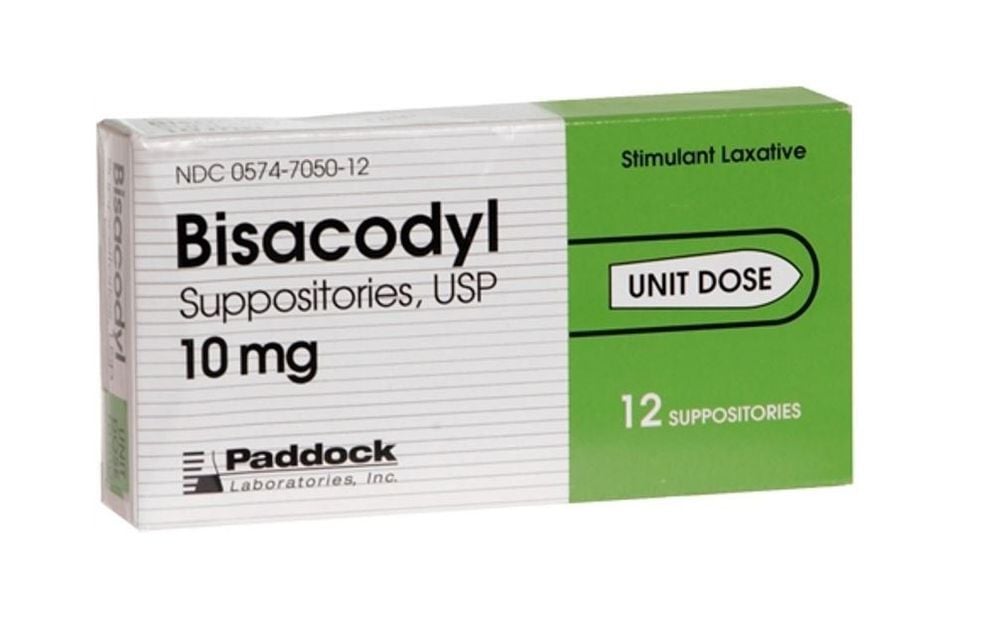
Bisacodyl là một trong các loại thuốc nhuận tràng kích thích hiện nay
2. When should a laxative be used?
Before you go to your local pharmacy to buy medicine for constipation, you need to understand the types of laxatives and therapies available, choosing the best one for your body's needs, and avoiding those that are too much. To be strong requires knowledge. Also, as with all treatments, used correctly will help avoid unwanted side effects.
It is important that you follow the instructions your doctor/pharmacist and manufacturer provide when taking over-the-counter laxatives. Unless otherwise directed by a healthcare professional, remember that over-the-counter and prescription laxatives should be used short-term, not to exceed the dosage stated on the label.
With all laxatives, it is important to consume at least 6-8 cups (250mL) of fluids (preferably water) per day, plus an additional cup with each dose of laxative prescribed. do, unless recommended by your healthcare provider.
Abuse of laxatives can lead to serious dysfunction of bowel movements such as paralytic ileus, catalytic colon, lazy or laxative, irritable bowel syndrome, pancreatitis and other problems. Therefore, it is important to use laxatives in moderation and under the supervision of a doctor or pharmacist. If you have chronic constipation, seek the care of a medical professional before self-treating with over-the-counter laxatives.
A common complication of pregnancy is constipation. If appropriate diet and lifestyle modifications to relieve constipation in pregnant or nursing women are not effective, your doctor may recommend a stool softener or bulk-forming laxative. It is very important that you drink plenty of water while taking laxatives, as some can be high in salt and dehydrating.
3. Notes when using laxatives
When using a laxative for occasional constipation, remember these tips:
If you need to use a laxative for "regular" bowel movements, use fiber first; Drink fluids and stay hydrated when using laxatives. Avoid frequent use of stimulant laxatives. Some types can limit the body's ability to absorb vitamin D and calcium. If you've been on medication and your constipation persists, see your doctor. Constipation can be a warning sign of a more serious problem such as colon cancer, diabetes or hypothyroidism... Your doctor can evaluate your medical history, perform a physical exam and tests, and identify The exact cause and solution for constipation. A healthy diet with fresh fruits, vegetables and whole grain products; exercise regularly; Drinking at least 8 glasses of water a day can help prevent constipation in most people. The liquid can be not only water, but also tea, soup and other forms of liquid. In a nutshell, laxatives help stimulate or facilitate bowel movements. There are many different types of laxatives, to choose the most effective one for constipation, you should consult your doctor before using them.
Please dial HOTLINE for more information or register for an appointment HERE. Download MyVinmec app to make appointments faster and to manage your bookings easily.




